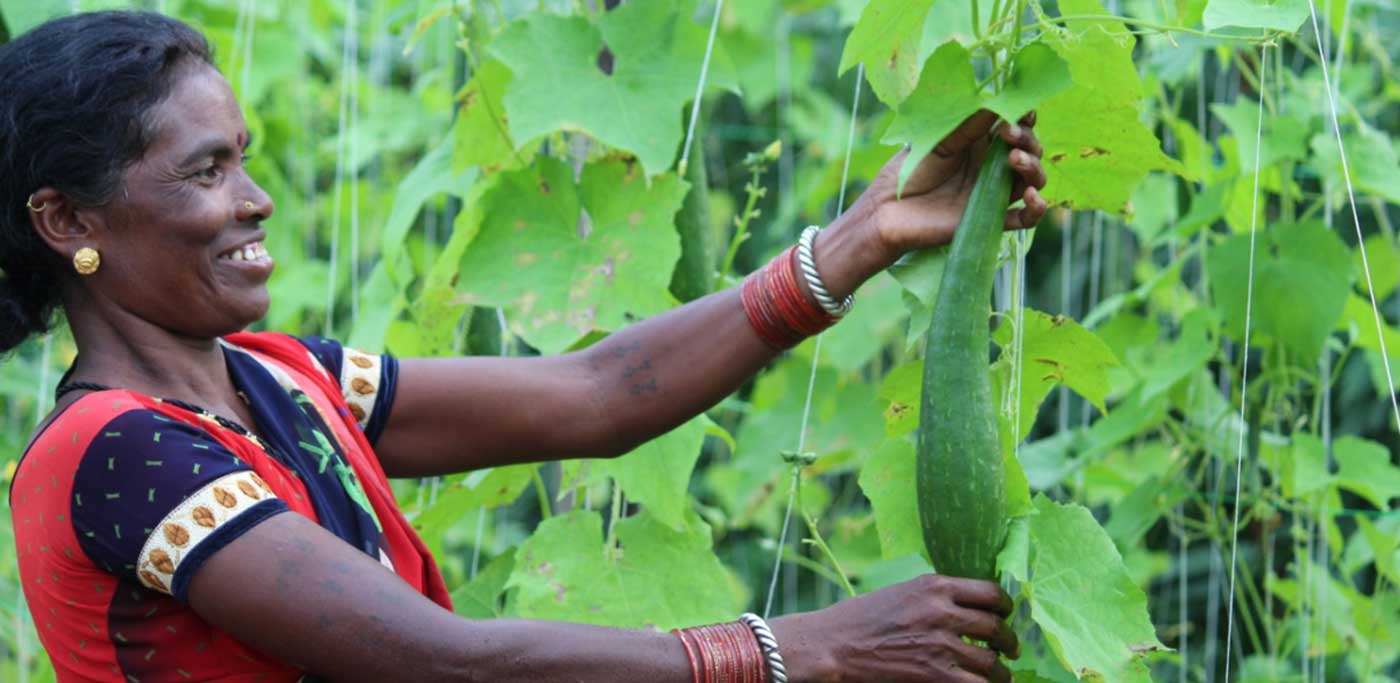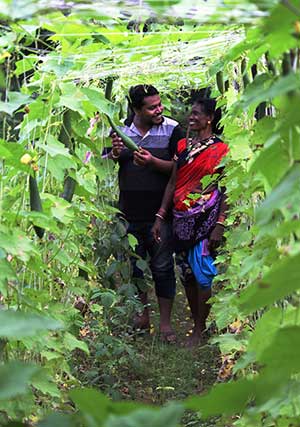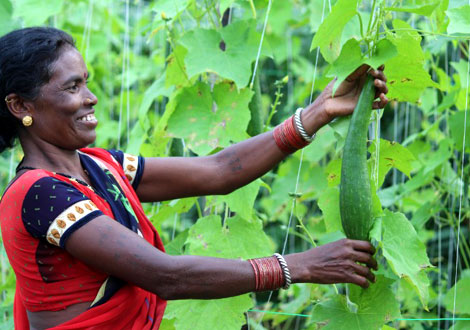From Just Boiled (White) Rice to a Colourful Food Plate
It was a hot summer day. There was just boiled rice and raw mango pickle on the plate. ‘Her family had a right to eat better’, she decided. In fact, her resolve would change the fate of a village and inspire many like her.
Agriculture in India is in deep stress. Disturbingly, it also suffers from rampant gender disparity. In one inconspicuous village of Debgaon in Chhattisgarh, a tribal woman is galvanizing an entire village to bring about radical change in agricultural production and gender norms. This is her story of change.

When PRADAN started work in Debgaon five years back, the visible manifestation of lack of year round food security and low income from agriculture was high rate of forced migration, extreme malnutrition and poverty. A new method of agriculture, System of Root Intensification (SRI), was introduced in all crops. There was a justified fear of abandoning age-old traditional methods.
For Kumari Bai, this was a potential way out of the farming malaise that had engulfed her and other families in the village. This journey started with one woman taking tentative steps to new farming methods. Within a year, the entire village shifted to SRI. Integrating both the traditional knowledge of Indian farmers and modern technologies, SRI, trellis based creeper cultivation and a strategy of mixed-multi tier cropping pattern ensured doubling of cereal production and farmers selling their vegetable surplus in the nearby market and beyond.

The changes are visible today. The food plates are now colorful, nutritious and healthy. Unsurprisingly, it was Kumari Bai who ventured into the market to sell vegetables (a first for a woman in her village): breaking barriers of patriarchy and entrenched social norms. Farmers like Kumari and others now earn more than Rs 30,000 ($ 425) every year through vegetable cultivation using the Machan system of agriculture. A quiet transformation in food sufficiency was achieved in a village within five years; led by a woman farmer.
Kumari Bai is today an inspiration for many indigenous tribal women not just in her village but in the entire district of Kanker.
The communities in remote corners of India need support: our support to realize their potential. PRADAN supports more than 380,000 women for their livelihood improvements through agriculture, market linkages, livestock rearing, and forest-based activities, promotion of enterprises and natural resource management.


